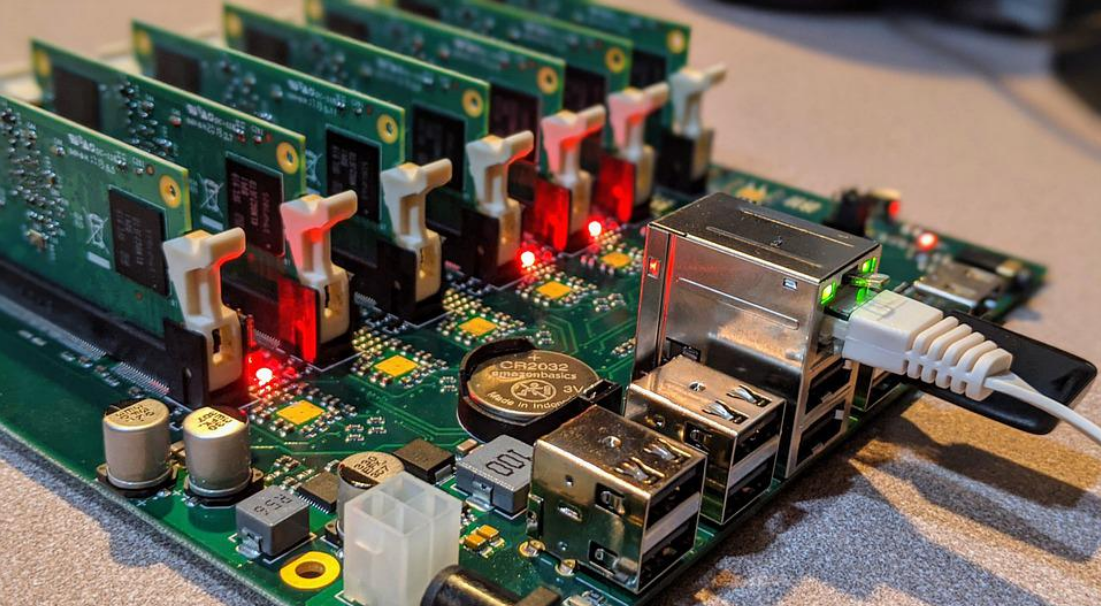Introduction
Raspberry Pi, a small but powerful single-board computer, has revolutionized various fields with its versatility and affordability. Among its many applications, scientists have increasingly embraced Raspberry Pi technology tech luver to enhance their research endeavors. This article explores how scientists leverage Raspberry Pi in their work and the impact it has on scientific research.
The Role of Scientists
In the realm of scientific exploration, Raspberry Pi serves as a valuable tool for conducting experiments, gathering data, and analyzing results. Its compact size and low cost make it accessible to researchers across different disciplines, from biology to physics.
Raspberry Pi Applications in Science
Environmental Monitoring and Data Collection
One of the primary uses of Raspberry Pi in scientific research is environmental monitoring. Scientists deploy Raspberry Pi devices equipped with sensors to collect data on various environmental parameters such as temperature, humidity, and air quality. This data is crucial for studying climate change, biodiversity, and ecosystem health.
Laboratory Experiments and Automation
In laboratory settings, Raspberry Pi facilitates automation and remote monitoring of experiments. Researchers can program Raspberry Pi boards to control equipment, record experimental conditions, and analyze results in real-time. This capability streamlines research processes and enables scientists to conduct experiments more efficiently.
Educational Purposes
Raspberry Pi also plays a significant role in science education. Its affordability and simplicity make it an ideal platform for teaching students about programming, electronics, and data analysis. By incorporating Raspberry Pi into classroom activities, educators can engage students in hands-on learning experiences and inspire the next generation of scientists.
Case Studies
Several scientific projects demonstrate the diverse applications of Raspberry Pi technology. For example, researchers have used Raspberry Pi to track wildlife populations, monitor air pollution levels in urban areas, and conduct experiments aboard the International Space Station.
Benefits of Raspberry Pi in Scientific Research
Cost-effectiveness
Compared to traditional laboratory equipment, Raspberry Pi offers a cost-effective solution for scientific research. Its low price point allows researchers to allocate resources more efficiently and pursue innovative projects without breaking the bank.
Flexibility and Customization
Raspberry Pi’s open-source nature and customizable hardware make it adaptable to a wide range of research applications. Scientists can tailor Raspberry Pi setups to meet specific experimental requirements, whether it involves controlling sensors, collecting data, or interfacing with other devices.
Accessibility
The accessibility of Raspberry Pi technology democratizes scientific research by lowering barriers to entry. Even researchers with limited funding or technical expertise can harness the power of Raspberry Pi to conduct experiments and contribute to scientific knowledge.
Challenges and Limitations
While Raspberry Pi offers numerous benefits, it also presents certain challenges and limitations in scientific research. Technical constraints, such as processing power and memory limitations, may restrict the scope of experiments that can be conducted using Raspberry Pi. Additionally, concerns about data security and privacy may arise when transmitting sensitive research data over the internet.
Future Prospects
Despite these challenges, the future looks promising for Raspberry Pi in scientific research. Ongoing advancements in technology are expected to address existing limitations and expand the capabilities of Raspberry Pi for scientific applications. As researchers continue to innovate and collaborate, Raspberry Pi will likely play an increasingly integral role in advancing scientific knowledge.
Conclusion
In conclusion, scientists are harnessing the power of Raspberry Pi technology to drive innovation and discovery in various fields of research. From environmental monitoring to laboratory experiments, Raspberry Pi offers a cost-effective and versatile solution for scientific endeavors. As the capabilities of Raspberry Pi continue to evolve, its impact on scientific research is expected to grow exponentially, shaping the future of scientific exploration.




